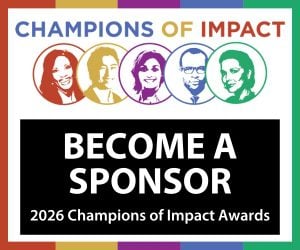Recently, the topic of mental health has been brought to the forefront of the African-American community due to incidents such as the suicide of Tennessee Titans receiver O.J. Murdock, and the recent hospitalization of Congressman Jesse Jackson Jr. for an unspecified “mood disorder.”
July was national Minority Mental Health Month. Throughout the month, African-American leaders and professionals, perhaps more than ever, addressed the devastation mental disorders are causing African-American families.
“Far too little attention is paid to mental health and the racial and ethnic disparities that exist not only in mental health care, but in mental health status,” said Rep. Emmanuel Cleaver, chairman of the Congressional Black Caucus, which joined the rest of Congress and the White House in recognizing Minority Mental Health Month.
African-Americans are 20 percent more likely than whites to report psychological distress, yet are two times less likely than whites to receive antidepressants, according to the U.S. Department of Health and Human Services’ Office of Minority Health.
Across a recent 15-year span, suicide rates increased 233 percent among African-American youth, compared to a 120 percent increase for Caucasian youth. Suicide is still the third leading cause of death for African-American youth, after accidents and homicides.
Also, African-Americans, although they are only 12 percent of the population, make up half of those who are homeless, in prison or living in foster care and the child welfare system. People in these groups have a higher risk of developing a mental illness.
Last week in Indianapolis, Dr. Frankie Cooper, a psychiatrist and member of the National Alliance on Mental Illness (NAMI), hosted a forum at University United Methodist Church to discuss solutions to mental health challenges in the African-American community.
“We need to have more awareness, education and understanding about the help that is available through organizations such as NAMI, which has so many wonderful resources and courses,” Cooper said.
NAMI is the nation’s largest grassroots organization dedicated to improving life for people affected by mental illness. Locally, it offers programs such as Peer to Peer which helps those who have a mental illness to support each other, as well as initiatives for families and parents of children with mental disorders.
“The bottom line is that help is out there,” Cooper said. “We don’t have to keep people in a dark room upstairs and away from everybody now.”
Some experts have noted that throughout history, a sense of distrust has existed in the African-American community regarding the mental health profession and treatment.
“A lot of that probably has to do with some of the experiments that have been conducted on African-Americans in the past,” said Beverly Thurman, who attended Cooper’s seminar to share how she overcame her struggle with bi-polar disorder. “Also, we have only recently seen an increase of minorities offering treatment. I had – and I think all of us should – get to a point where we seek proper treatment, regardless of who is providing it, when we need it.”
Cooper said it is also important for the African-American community to change its general views of mental illness and treatment.
“We have to understand the stereotypes and myths that are out there about mental illness not only in the streets, but also in the churches,” she stated. “That way, people can get the assistance they need.”
Cleaver, of the Congressional Black Caucus, said the African-American community, and everyone else, should take advantage of the U.S. Supreme Court’s recent decision to uphold the Affordable Care Act, which will expand access to health care for more uninsured people.
“As a nation we have never had a better opportunity to work to eliminate racial and ethnic mental health disparities,” Cleaver said. “We must destigmatize mental health illnesses, improve our mental health screenings and diagnoses and expand access to needed mental health care services and treatments.”
Next week: The Recorder speaks with those who have overcome challenges to their mental health. For more information, contact the Indianapolis chapter of the National Alliance on Mental Illness at (317) 257-7517, or visit nami.org.





